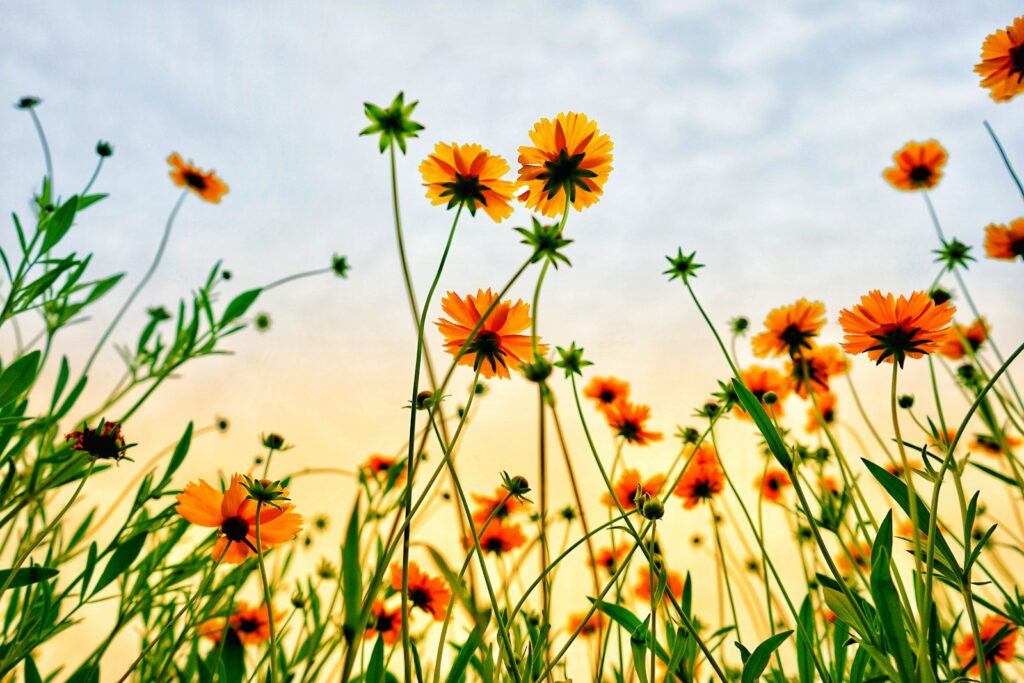Your garden should tell a story every season, with extraordinary wildflowers painting a vibrant palette of colors. A seamless mix of annuals, biennials and perennials contribute to this aesthetically pleasing canvas year after year. But are all wildflowers perennials? Let’s embark on a journey to unveil the mystery.
The World of Wildflowers
Wildflowers encompass an extensive range of plant species flowering throughout different seasons. They originate in meadows, forests, deserts, and mountains, delighting us with their charismatic beauty. Predominantly used for landscaping purposes, these beauties can survive in diverse climatic conditions.
Understanding Wildflower Types:
- Annuals: These flowers grow from seeds, bloom and die within one year or season.
- Biennials: These plants take two years to complete their lifecycle, where they sprout and grow leaves in the first year and flower, seed and die in the second.
- Perennials: These are long-living plants that continue to bloom and seed for more than two years.
Lifecycle of a Perennial Wildflower
Contrary to common belief, not all wildflowers are perennials. Only a certain percentage falls under the perennial category, returning year after year making them a favorite among gardening enthusiasts.
Perennial flowers sprout from seeds during their initial growth cycle but rely heavily on internal food reserves stored in underground roots, stems, bulbs, or rhizomes to produce colorful blooms each season. Unlike annuals and biennials, perennials do not exhaust their energy in producing a massive quantity of seeds; instead, they spread out their blooming power over years, often growing stronger and fuller with each passing season.
Benefits of Perennial Wildflowers
Gardening does not revolve solely around aesthetic appeal. Creating an ecological balance is equally important to encourage biodiversity. In such scenarios, perennial wildflowers emerge as the winning choice considering their ample benefits.
- A Year-Round Display: As perennials bloom at different intervals throughout the year, having a mix of these plants guarantees constant color in your garden.
- Ease of Maintenance: Once established, perennials need less care than annuals or biennials. They are mostly resistant to diseases and pests, thus requiring less attention.
- Biodiversity Champions: They host a variety of pollinators like bees, butterflies, and hummingbirds, enhancing biodiversity in gardens.
- Soil Conservation: Their extensive root systems help reduce soil erosion, enriching the quality of soils over time.
Identifying Perennial Wildflowers: A How-to Guide
Distinguishing perennial wildflowers from other categories might appear challenging for amateur gardeners. However, certain cues can guide you in the process.
The leaves of perennials, especially near the ground level, mainly remain green round the year. Moreover, perennial plants usually take more than a year to produce flowers and seeds, contrary to annuals and biennials. Therefore, if your wildflower has not flowered in its first year, it could very well be a perennial!
Frequently Asked Questions About Perennials
- Do perennial wildflowers bloom the first year? No, they typically spend their first year developing a healthy root system.
- How to start perennials from seeds? It is best to start them indoors under controlled temperature and then transplant outside when they are hardy enough.
- When do perennials bloom? Depending on the species, perennials can bloom at any time during the growing season; the trick lies in selecting a variety for sustained color.
The world of wildflowers is as varied as it is beautiful, with each plant type contributing its unique charm. While not every wildflower you encounter will be a perennial, those that are enrich our yards, landscapes, and meadows with enduring beauty and valuable ecological function.

